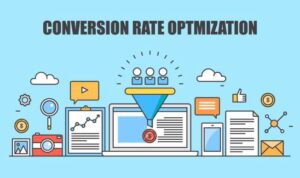Analyzing SEO Performance – Analyzing Performance is like diving into the world of online visibility and search engine dominance. It’s all about understanding the numbers, tools, and strategies that drive your website’s performance sky-high.
From deciphering complex data to optimizing every aspect of your online presence, this guide will take you on a journey through the intricacies of analysis. Get ready to unlock the potential of your digital footprint!
Understanding Performance
performance refers to the effectiveness of a website’s search engine optimization efforts in driving organic traffic and improving search engine rankings. It involves analyzing various metrics to evaluate the impact of strategies on a website’s visibility and performance in search engine results pages (SERPs).
Regular monitoring of performance is crucial to ensure that the implemented strategies are yielding positive results and to identify areas that need improvement. By continuously tracking performance, website owners can make informed decisions to optimize their websites for better search engine visibility and user experience.
Key Performance Indicators (KPIs) for Analysis
- Organic Traffic: The amount of traffic generated through organic search results, indicating the effectiveness of efforts in driving website visits.
- Rankings: The positions of targeted s in search engine results, showing the website’s visibility for specific search queries.
- Click-Through Rate (CTR): The percentage of users who click on a website’s link in search results, reflecting the relevance and attractiveness of the website’s content.
- Conversion Rate: The percentage of website visitors who complete a desired action, such as making a purchase or filling out a form, measuring the effectiveness of in driving conversions.
- Backlink Profile: The quality and quantity of backlinks pointing to the website, influencing search engine rankings and authority.
Tools for Analyzing Performance
When it comes to analyzing performance, there are several popular tools that digital marketers and website owners rely on to track and improve their search engine rankings. These tools provide valuable insights into various aspects of , such as performance, backlink analysis, site speed, and more. Let’s take a look at some of the top tools used for analysis.
Popular Analysis Tools
- Google Analytics: Google Analytics is a free tool that provides detailed data on website traffic, user behavior, and conversions. It allows you to track the performance of your efforts by providing information on organic search traffic, performance, and more.
- Ahrefs: Ahrefs is a comprehensive tool that offers features like backlink analysis, research, competitor analysis, and site audit. It helps you identify areas for improvement in your strategy and track your progress over time.
Comparison of Google Analytics and Ahrefs
| Features | Google Analytics | Ahrefs |
|---|---|---|
| Analysis | Basic performance data | Advanced research tools |
| Backlink Analysis | Limited backlink data | Comprehensive backlink analysis |
| Competitor Analysis | Basic competitor insights | Detailed competitor analysis tools |
How Analysis Tools Help in Tracking and Improving Performance
- Performance: By tracking rankings and search volume, tools help you identify high-performing s and optimize your content accordingly.
- Backlink Analysis: Analyzing backlink profiles helps you identify quality backlinks, disavow toxic links, and improve your site’s authority in search engines.
- Competitor Analysis: tools allow you to monitor your competitors’ strategies, identify opportunities for improvement, and stay ahead in the search rankings.
On-Page Analysis: Analyzing SEO Performance

When it comes to optimizing a website for search engines, on-page analysis plays a crucial role in determining the performance and visibility of a site in search results. By analyzing various on-page elements, website owners can identify areas of improvement to enhance their strategies and attract more organic traffic.
Significance of On-Page Analysis
- Optimizing on-page elements such as meta tags, headings, and content helps search engines understand the relevance of a webpage to specific s.
- Improving on-page can lead to higher rankings in search engine results pages (SERPs), increasing visibility and driving more organic traffic to the website.
- Regular on-page audits can help website owners identify technical issues, improve user experience, and stay ahead of competitors in the online landscape.
Best Practices for Conducting On-Page Audits
- Start by conducting a comprehensive research to identify target s and phrases relevant to the website’s content.
- Optimize meta tags, including title tags and meta descriptions, to accurately reflect the content of each webpage and improve click-through rates.
- Ensure that headings (H1, H2, etc.) are properly structured and contain relevant s to help search engines understand the hierarchy and context of the content.
- Optimize image alt text, URLs, and internal links to improve accessibility, user experience, and overall performance.
- Regularly update and optimize content to keep it fresh, relevant, and engaging for both users and search engines.
Examples of On-Page Elements to Optimize, Analyzing SEO Performance
- Meta Tags: Crafting compelling title tags and meta descriptions with relevant s to improve click-through rates and search visibility.
- Heading Tags: Properly structuring headings with target s to enhance the readability and value of the content.
- Image Optimization: Adding descriptive alt text to images and optimizing filenames for improved accessibility and relevance.
- Internal Linking: Creating a logical internal linking structure to help search engines navigate the website and distribute link equity effectively.
Off-Page Analysis
Off-Page plays a crucial role in evaluating the overall performance of a website. It focuses on factors that occur outside of the website itself, such as backlinks, social signals, and brand mentions across the web. Analyzing off-page helps in understanding the website’s authority, relevance, and trustworthiness in the eyes of search engines.
Key Metrics for Off-Page Evaluation
- Backlink Quality: Assess the quality of backlinks pointing to your site, considering factors like domain authority, relevance, and anchor text.
- Social Signals: Monitor social media engagement, shares, likes, and comments to gauge the website’s social presence and influence.
- Brand Mentions: Track mentions of your brand across the web to measure brand awareness and reputation.
- Referral Traffic: Analyze the traffic coming to your site from external sources to understand the effectiveness of off-page efforts.
Strategies to Improve Off-Page Performance
- Quality Link Building: Focus on acquiring high-quality backlinks from relevant and authoritative websites through guest posting, influencer outreach, and content partnerships.
- Social Media Engagement: Actively engage with your audience on social media platforms to increase brand visibility and attract more inbound links.
- Online Reputation Management: Monitor brand mentions and reviews online, address any negative feedback promptly, and encourage positive reviews to build credibility.
- Content Promotion: Share valuable content across different channels to attract more traffic, engagement, and backlinks to your website.
Technical Evaluation

When it comes to analyzing performance, technical plays a crucial role in ensuring a website’s visibility and ranking on search engines. Technical focuses on optimizing the technical aspects of a website to improve its crawlability, indexing, and overall performance.
Importance of Technical
Technical is vital because it helps search engines understand and index your website effectively. By addressing technical issues, you can enhance user experience, increase site speed, and ultimately boost your search engine rankings.
- Ensure proper website structure and navigation to help search engine bots crawl and index your pages efficiently.
- Optimize site speed and performance to provide a better user experience and reduce bounce rates.
- Implement schema markup to enhance rich snippets and improve visibility in search results.
Common Technical Issues
Technical issues can negatively impact your website’s performance and visibility. Some common issues include:
- Slow page speed, which can lead to higher bounce rates and lower rankings.
- Mobile responsiveness problems, affecting user experience and mobile search rankings.
- Broken links and 404 errors, which can harm user experience and performance.
Resolving Technical Issues
To enhance your website’s performance, it’s essential to address technical issues promptly. Here are some steps you can take to resolve common technical problems:
- Regularly audit your website for technical issues using tools like Google Search Console and Screaming Frog.
- Optimize images and use appropriate image alt text to improve site speed and accessibility.
- Fix broken links and 404 errors by redirecting them to relevant pages or updating the links.





